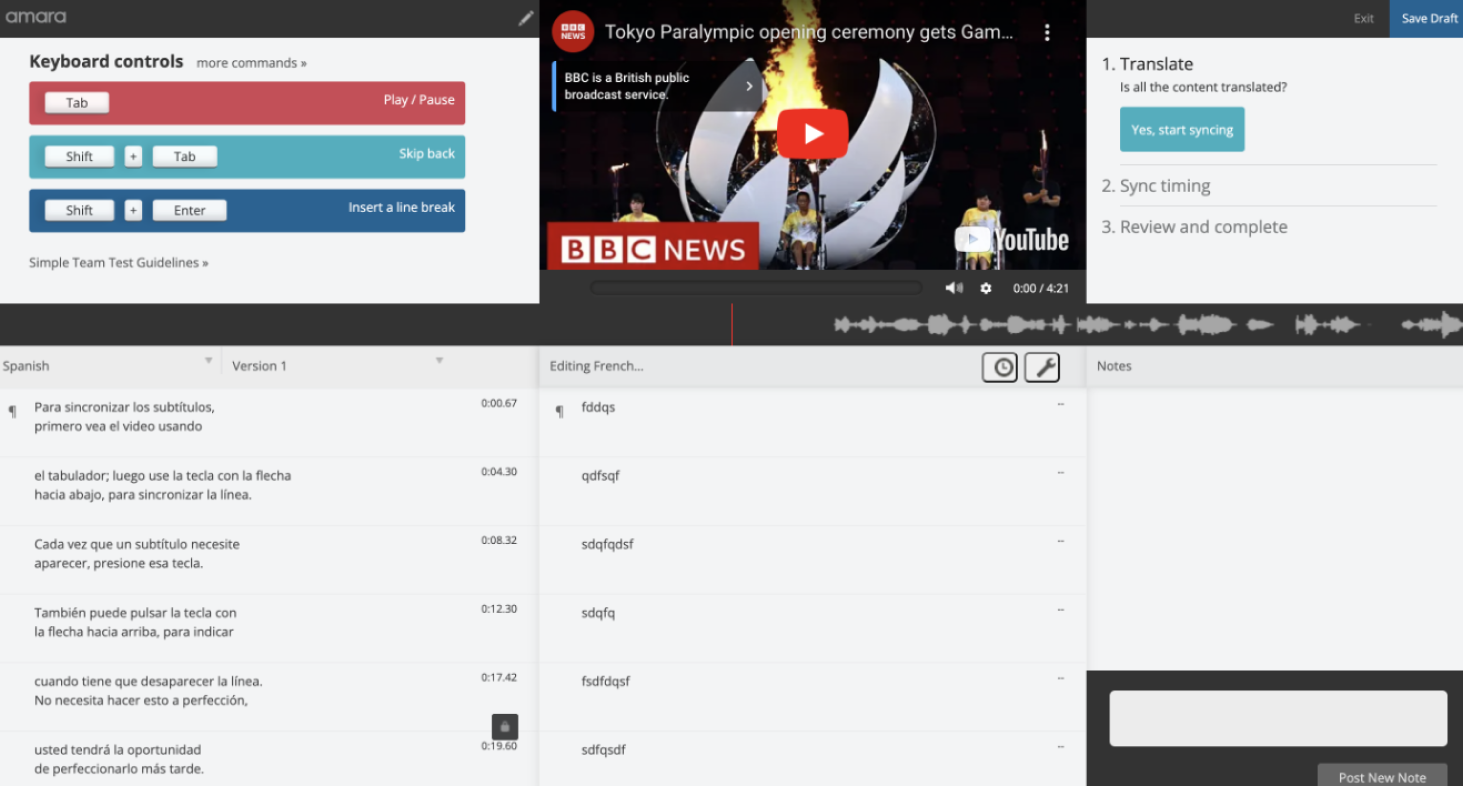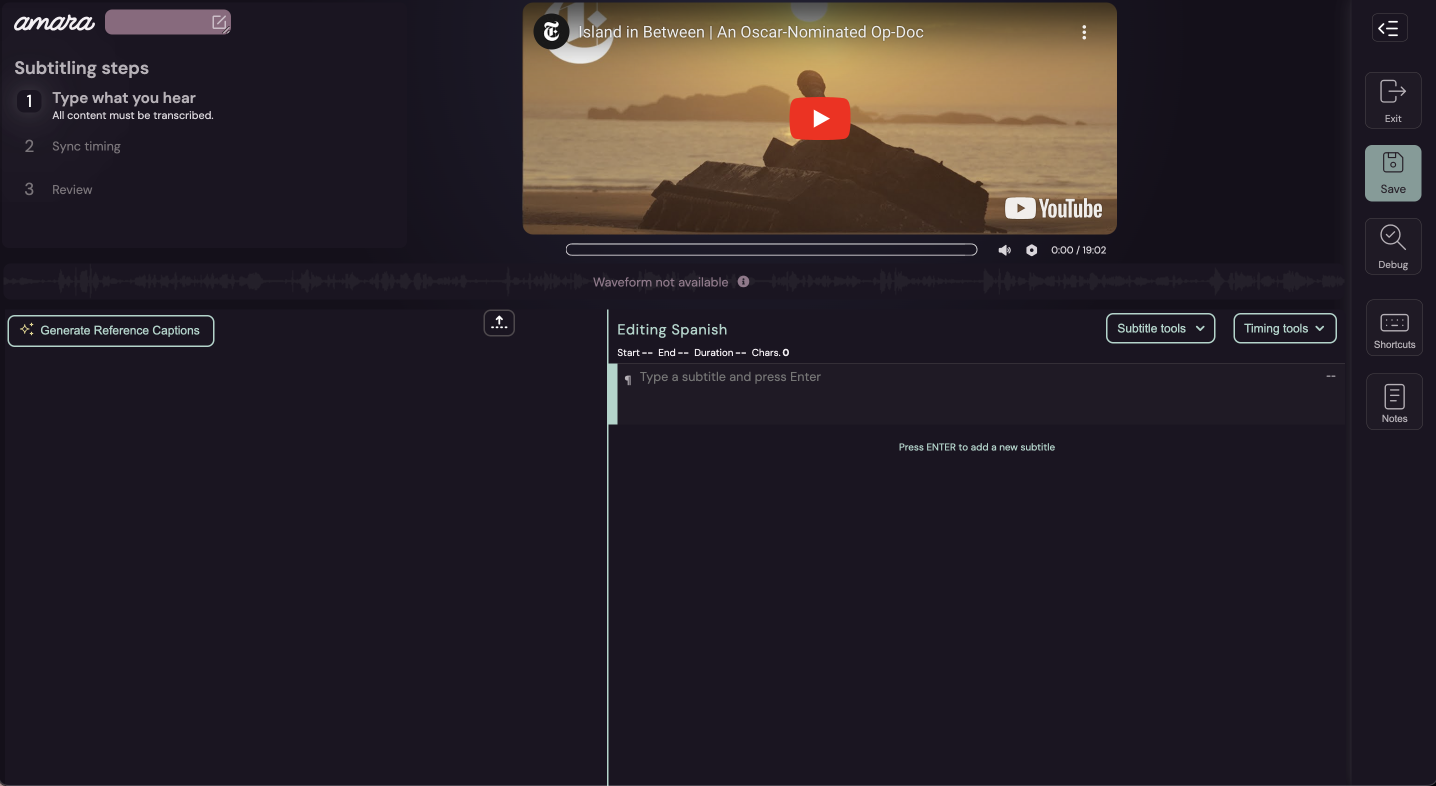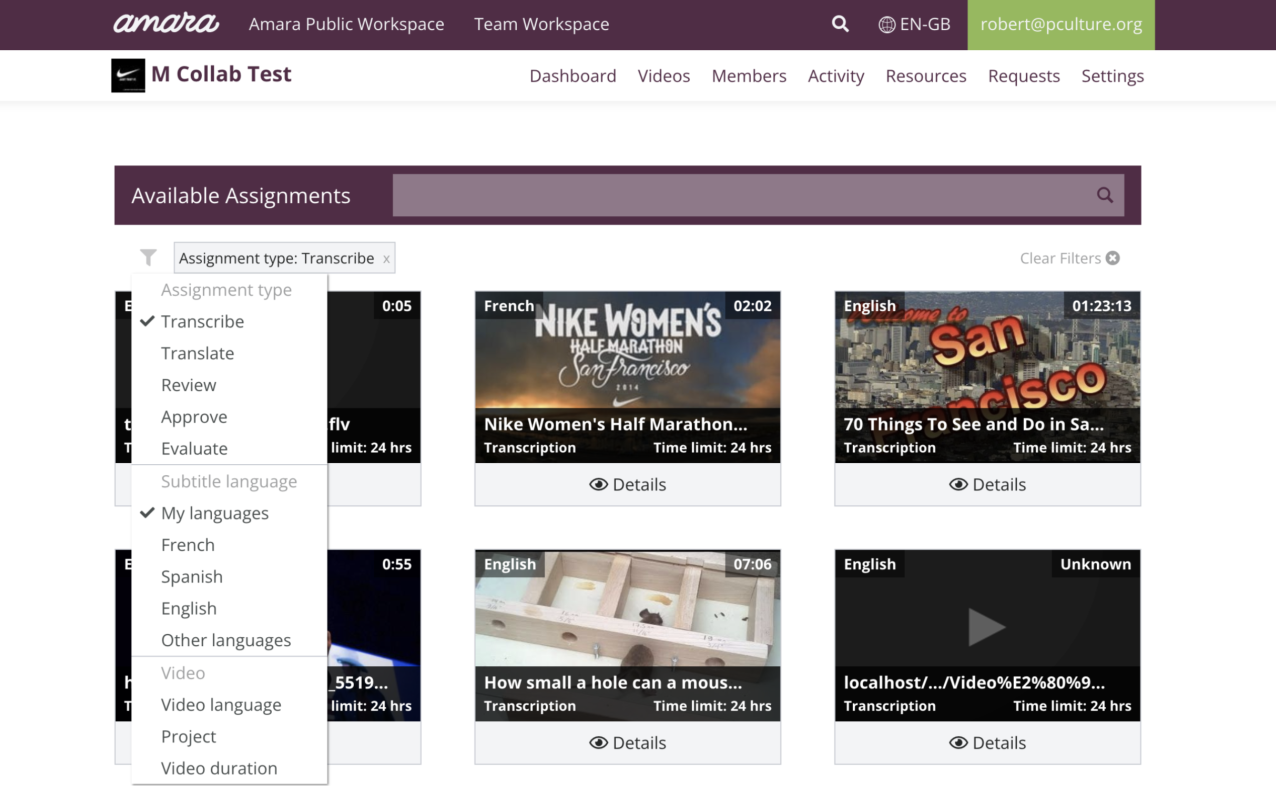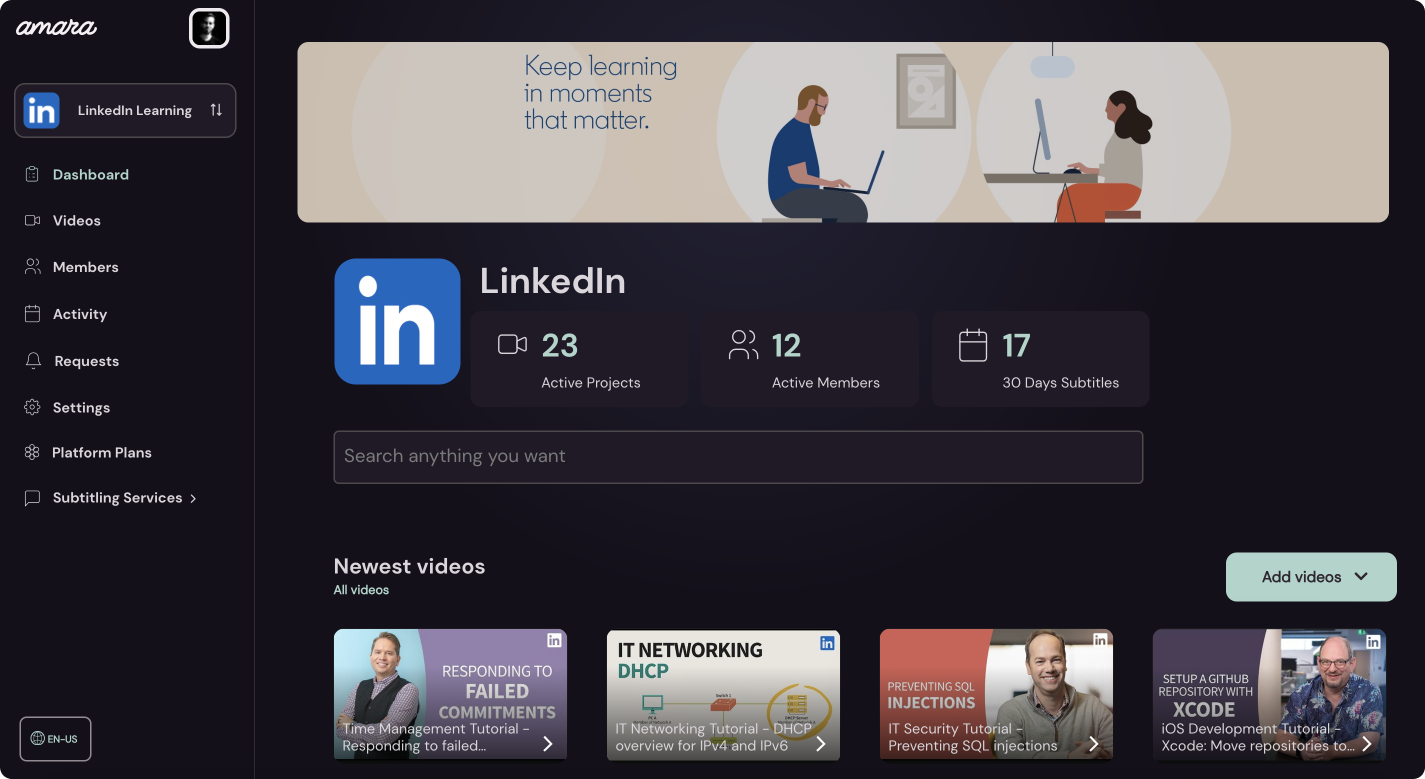I am currently not available but feel free to get in touch ! contact me
uxpages ux pages
Subtitling SaaS
Enterprise platform product updates
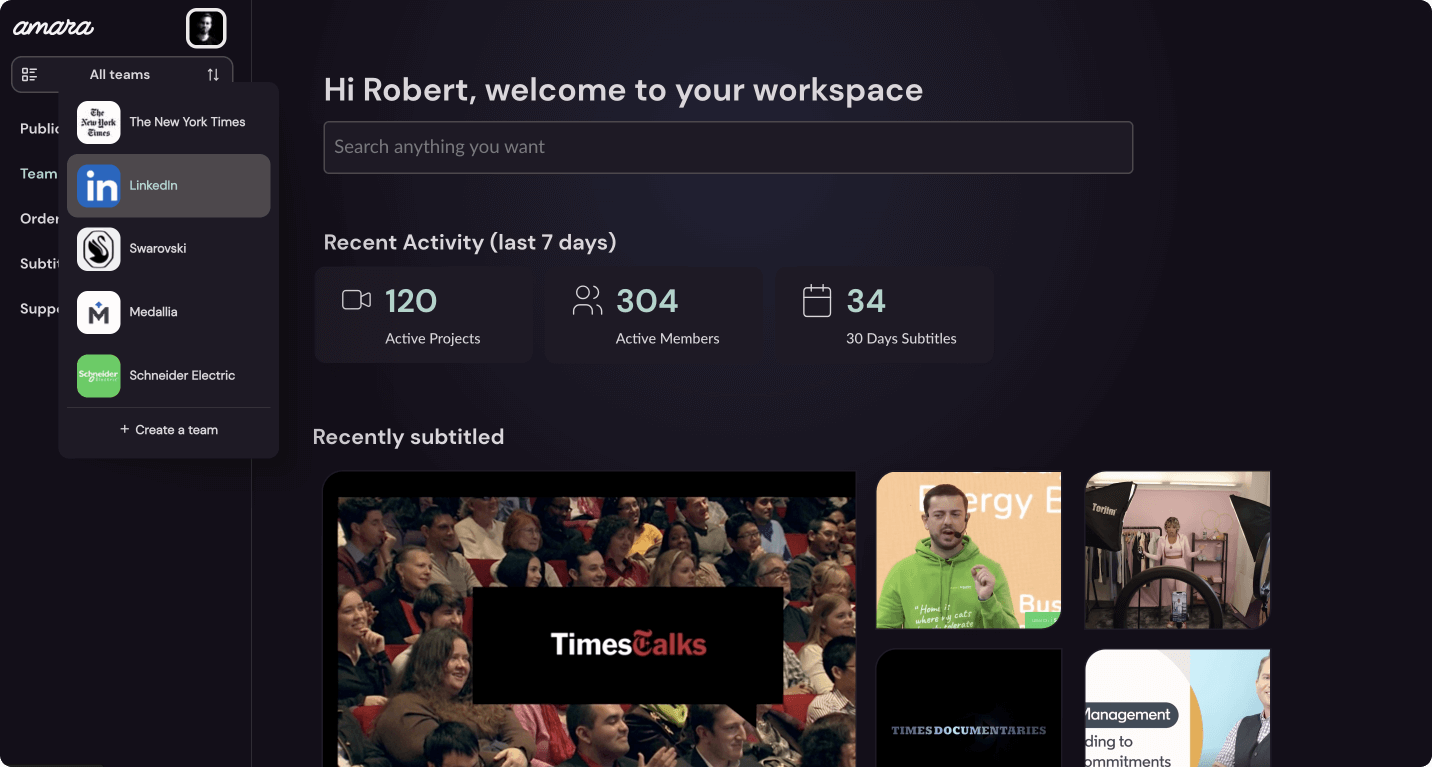
Video Editor Redesign
📊 Identified issue from research: Outdated UI. Eye strain and lack of focus on video.
💡 Solution: UI update giving more focus to video and subtitles plus UI elements elevation. This was the first temporary step before considering a full redesign process that would impact the layout and require more UX support to users. Design implemented in Angular.
🎯 Impacted KPI: time-on-task, retention, satisfaction score.
Enterprise Platform Redesign
Search suggestion
📊 Identified issue from research: one user testing insight was that some users needed quicker access to video, members or support content. The platform faced a deeper Information Architecture issue that needed to be addressed.
💡 Solution: A potential workaround was to offer useful search suggestions to our users. We decided to display the results within categories for better scanning. In the meantime we could address the Information Architecture issue knowing that our users had a way to access the information they were looking for.
🎯 Impacted KPI: time-on-task, retention, satisfaction score.
GenAI Integration
📊 Identified issue from research: Caption transcription is a major pain point. ("If I had a magic wand I would just get all this text out of the video")
❗ Problem: this is a key feature that would impact many KPIs. But how do we get our user to actually buy and use caption generation?
💡 Solution: by integrating the feature directly in context, alongside with SEO-oriented landing pages. Our goal was to improve the overall experience of generative AI by quickly providing a first draft of the captions and allowing users to use or dicard each generated caption.
🎯 Impacted KPI: revenue, upgrade rate, retention rate, time-on-task, time to 1st action (sign-up), adoption rate, satisfaction score.
As a second step we offered our users the ability to translate the first speech-to-text output:
Gen-AI Self-service ordering journey
📊 Identified issue from research: "What If I just want to extract text without using your editor?"
❗ Problem: how do we handle the purchase journey for a service that needs time to be available for users? We needed to give our AI time to "cook" the captions order.
💡 Solution: by being transparent about the process (operational transparency). People will value your product more if they can see “behind the curtain”. The rest of the process includes all the standard checkout elements.
🎯 Impacted KPI: activation, revenue, task success rate, abandonment rate and satisfaction score. We also took the opportunity to get more information prompting our users to fill a form while waiting.
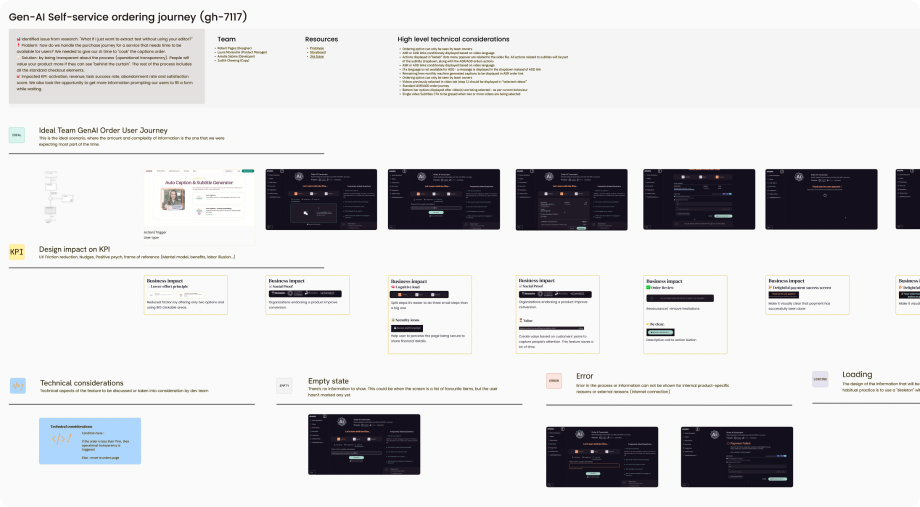
👆 Extract from the Figma file I use to centralize the user journey, design impact on KPIs, technical considerations, and state variations across the entire product feature lifecycle (Loading, Partial, Error, Success, Empty). I aim to create a single comprehensive document alongside the prototype and share it with with everyone.
Homepage
We already had multiple services SEO-oriented pages so we wanted the homepage to reflect what the organization is and all the services we offer. This page had to be a powerful communication tool for potential partners or funding partners. It also offers call to actions to our most profitable services and prompted users to create an account if they wanted to generate captions or use our video editor.
Team Settings Completion
📊 Problem: Many support-related issues could be solved by better team settings
💡 Solution: Make the progress indicator prominent, and show after the first completed task a relatively high completion rate
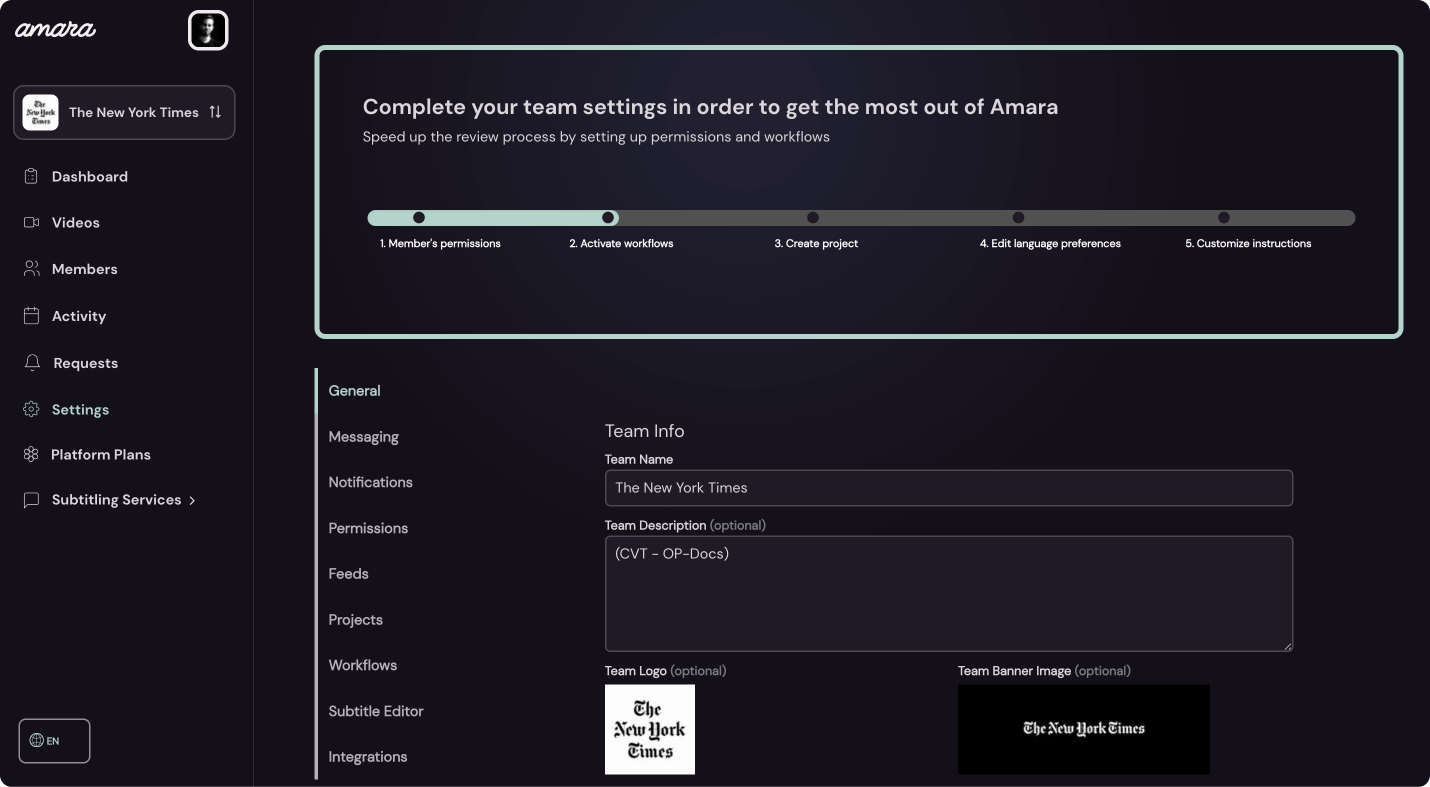
Feature discovery
📊 Identified issue from research:Undiscovered features ("Wow! I did not know we could do that!")
❗ Business Problem: how can we increase the feature adoption rate?
💡 Solution: we prompted users to display features they are not using that might be useful for them to save time in the captioning process.
🎯 Impacted KPI: adoption rate & satisfaction score.
Display onboarding steps left as empty state with progress bar right
Problem: this is a key feature that would impact many KPIs. But how do we get our user to actually buy and use caption generation?
